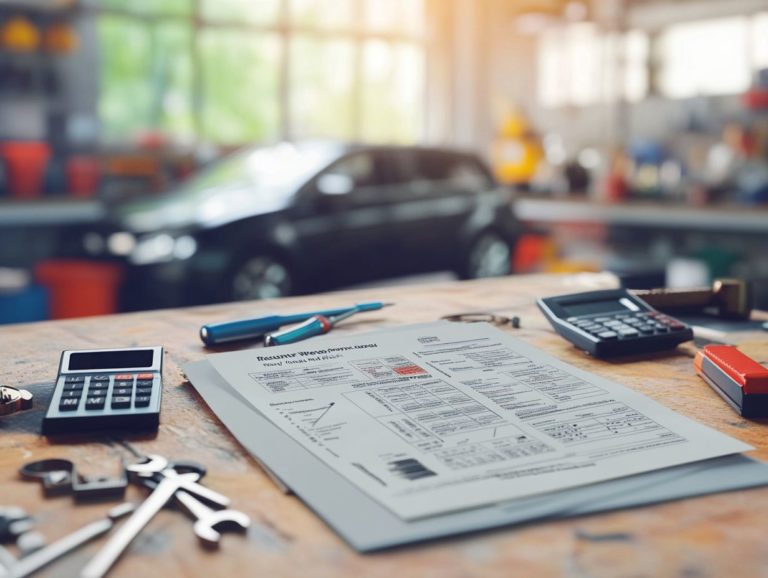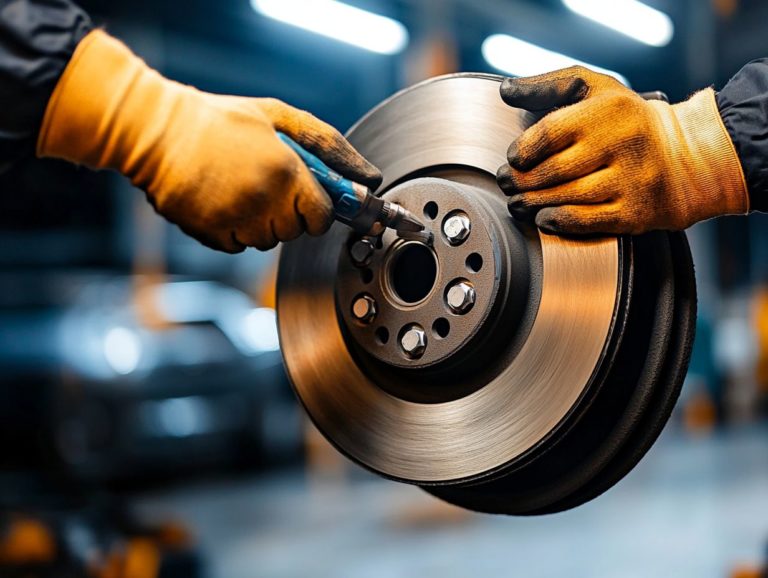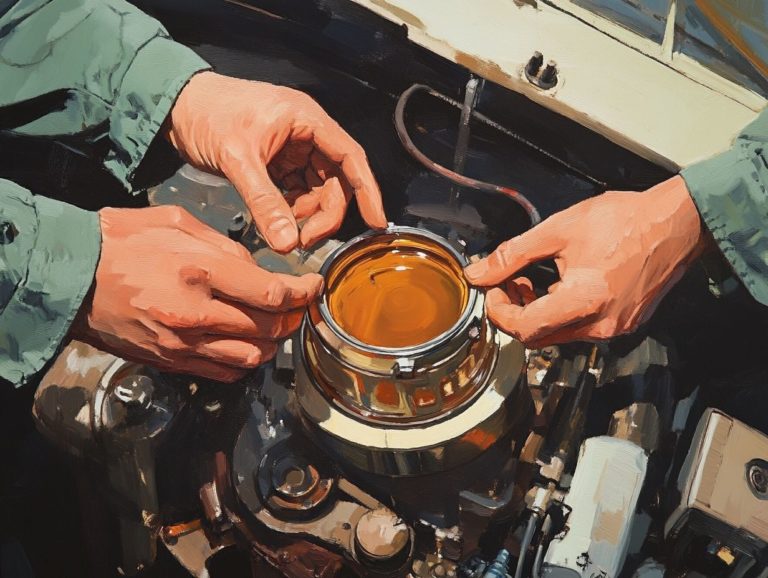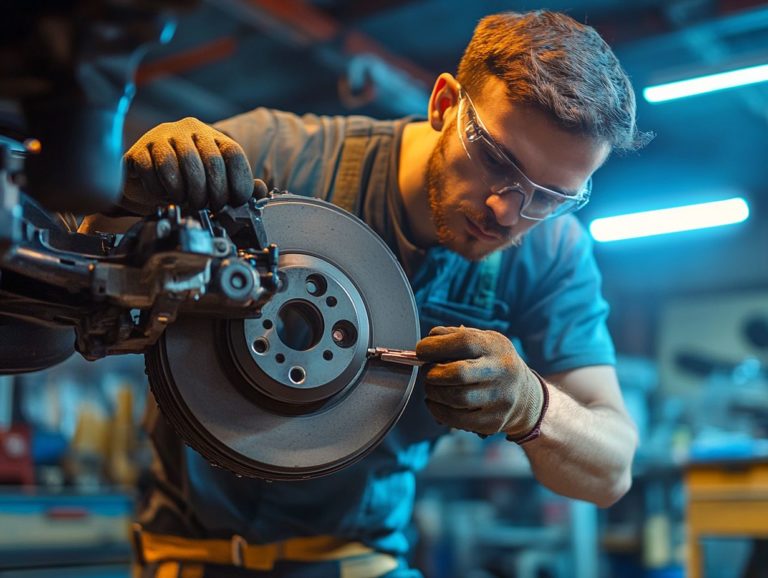What to Do After a Minor Car Accident
Car accidents, even the seemingly minor ones, can be overwhelming and stressful. Understanding the right steps to take immediately after the incident can significantly impact your safety and help protect your rights.
From assessing injuries and calling for help to documenting the scene and notifying your insurance company, each action you take plays a crucial role in the aftermath.
This guide outlines essential steps, highlights common injuries, and clarifies when it s wise to seek legal advice, ensuring you re well-prepared to manage the situation effectively.
Contents
- Key Takeaways:
- Steps to Take Immediately After a Minor Car Accident
- Notifying Insurance Companies
- Seeking Medical Attention and Treatment
- Dealing with Car Repairs and Insurance Claims
- Legal Considerations After a Minor Car Accident
- Your Top Questions Answered After a Minor Car Accident!
- What to Do After a Minor Car Accident?
- What should I do if my car is still drivable after a minor car accident?
- What information should I exchange with the other driver after a minor car accident?
- Do I need to call the police after a minor car accident?
- Should I take pictures of the accident scene after a minor car accident?
- What should I do if the other driver refuses to exchange information after a minor car accident?
Key Takeaways:
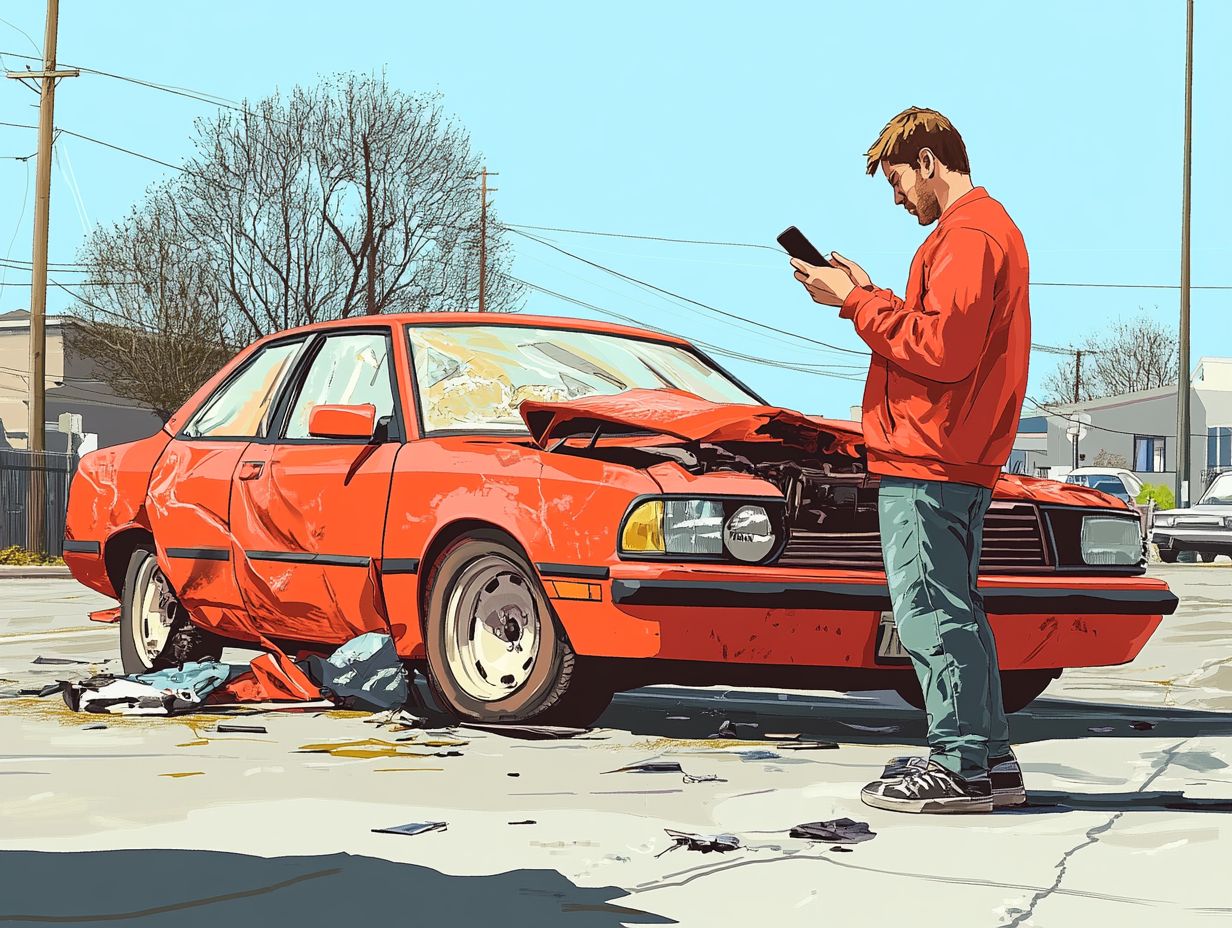
- Assess injuries and call for help immediately after a minor car accident.
- Document the scene and exchange information with the other driver.
- Notify your insurance company and avoid admitting fault.
Steps to Take Immediately After a Minor Car Accident
Experiencing a minor car accident can be both overwhelming and traumatic, especially in a bustling city like Dallas, Texas. Stay calm! Your quick actions can make a big difference.
Start by checking for injuries and ensuring everyone is in a secure location. If anyone is injured, call 911 immediately for medical assistance and to have law enforcement on the scene.
Once that s taken care of, document the accident thoroughly. Snap plenty of photographs and exchange information with the other parties involved. Your actions during this critical moment will significantly influence the claims process and any potential personal injury cases down the line.
Assessing Injuries and Calling for Help
After a minor car accident, your first priority should be to check for injuries in yourself and anyone else involved. Some injuries may not be immediately visible.
Understanding that certain injuries like concussions, internal bleeding, or whiplash can reveal themselves hours later highlights the importance of conducting a thorough assessment. Gathering as much information as possible about everyone s condition is crucial.
If you notice anyone appearing disoriented, experiencing severe pain, or struggling to breathe, call for immediate medical assistance. Knowing when to dial 911 is paramount; don t hesitate if there s uncertainty about someone s health.
Timely intervention can significantly impact outcomes, particularly for conditions that necessitate urgent care.
Documenting the Scene and Exchanging Information
Documenting the scene of a minor car accident is crucial for establishing the facts and enhancing your claims process with the insurance company.
Thoughtfully capturing photographic evidence from various angles provides visual context that bolsters your written accounts. Include images of all vehicles involved, the road conditions, and any pertinent traffic signs or signals. Jot down immediate details like the time, date, and location of the incident.
Exchanging contact information and statements with everyone involved promotes transparency and ensures that all perspectives are documented effectively. This gathered information will play a pivotal role in the official accident report, aiding insurance adjusters in assessing liability.
Notifying Insurance Companies
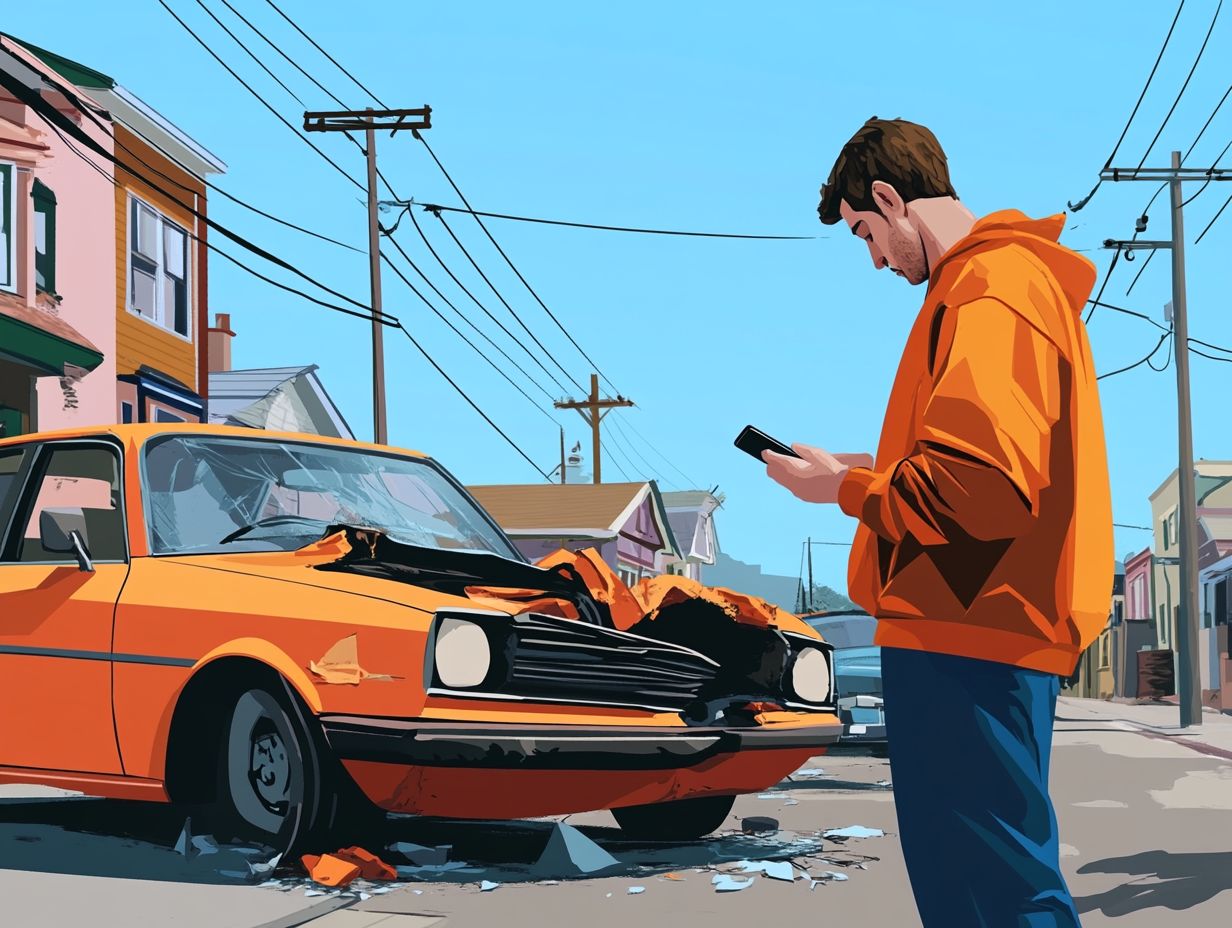
Notifying your insurance company promptly after a minor car accident is essential. This proactive step initiates the claims process and paves the way for a timely resolution of your insurance claim, especially regarding an auto collision.
What to Say and What Not to Say
Regarding speaking with law enforcement and your insurance company after a minor car accident, knowing what to articulate and what to steer clear of is essential to safeguard your interests.
Clear and precise statements will help establish the facts surrounding the incident. Misleading or ambiguous comments could lead to misunderstandings or even liability issues later on. You should share specific details like the location, time, and any observable conditions, but hold back from making assumptions about fault or discussing anything that could be interpreted as an admission of blame.
Maintaining a calm and respectful tone is critical; it demonstrates professionalism and ensures that the details are conveyed accurately. Remember, poorly chosen words can have significant repercussions, influencing your insurance claims and potential legal outcomes.
Seeking Medical Attention and Treatment
Seeking medical attention after a minor car accident is crucial, even if you feel fine. Some common injuries can be hidden, lurking beneath the surface without immediate symptoms.
Addressing these issues promptly protects your well-being and strengthens any potential personal injury claims you wish to pursue later.
Common Injuries After a Car Accident
Common injuries you might face after a car accident include whiplash, concussions, and fractures, each varying in severity and often requiring immediate medical attention.
These injuries typically result from the sudden impact and force of the collision, which can lead to various complications. For instance, whiplash can cause neck pain and stiffness, while concussions may lead to headaches and confusion. This underscores the importance of prompt evaluation. Fractures, depending on their location, can result in long-term mobility issues if not treated properly.
If you experience persistent pain or unusual symptoms after an accident, it’s crucial to reach out for help.
Documenting your injuries and medical visits is vital for supporting any potential insurance claims. Having this evidence on hand can significantly strengthen your case should any future proceedings arise.
Dealing with Car Repairs and Insurance Claims
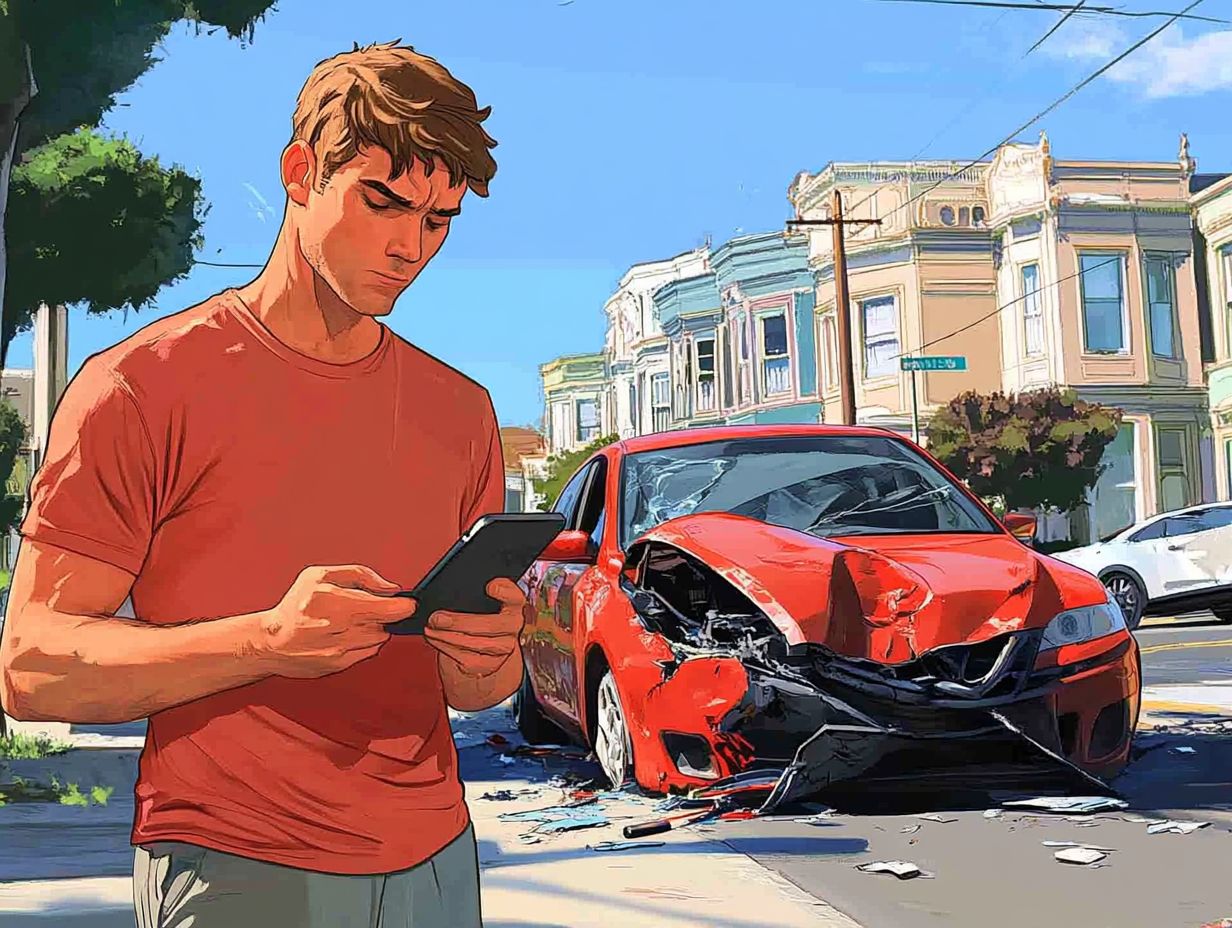
Navigating car repairs and the insurance claims process can often feel overwhelming. However, familiarizing yourself with your rights and obligations can transform a potentially daunting experience into a much smoother journey after a minor car accident.
Understanding the Claims Process
Understanding the insurance claims process is essential for filing a collision claim a request for reimbursement after your vehicle is damaged in an accident after a minor car accident. This ensures you follow all necessary steps with precision.
Navigating this often intimidating journey requires a strategic approach that gives you the power to understand the process every step of the way. First and foremost, reach out to your insurer as soon as possible ideally within 24 hours to report the incident and kickstart the claim process.
Next, gather all relevant documentation, including photos of the accident scene, police reports, and any witness statements. These pieces will fortify your claim. When filling out the claim form, ensure every detail is accurate and comprehensive; any inaccuracies could lead to frustrating delays or even denials.
As the process unfolds, be prepared for negotiations. Having a solid understanding of your policy and knowing the true value of your claim can significantly impact the outcome. Common pitfalls to avoid include waiting too long to file or neglecting crucial evidence, so remaining proactive is absolutely vital.
Legal Considerations After a Minor Car Accident
Navigating the legal landscape following a minor car accident can feel overwhelming. It’s crucial for you to understand your rights and recognize when it’s time to consult a personal injury attorney. This knowledge can profoundly impact the outcome of your situation.
A minor car accident can quickly turn complicated. Here s why consulting a lawyer is crucial!
Consulting with a personal injury attorney becomes essential when the circumstances surrounding a minor car accident become complicated, especially regarding liability and the accuracy of the accident report.
If conflicting accounts emerge or insurance companies are involved, an attorney’s expertise can significantly help. For example, if a driver contests fault or if injuries aren’t immediately visible, neglecting to seek legal counsel may lead to inadequate compensation or even a denial of a legitimate claim.
Dealing with insurance companies without professional assistance can result in settlements that fall short. This may leave you covering medical expenses or lost wages out of pocket. By hiring an experienced personal injury lawyer, you can ensure your case receives a fair evaluation, granting you peace of mind and a stronger chance at a favorable outcome.
Your Top Questions Answered After a Minor Car Accident!
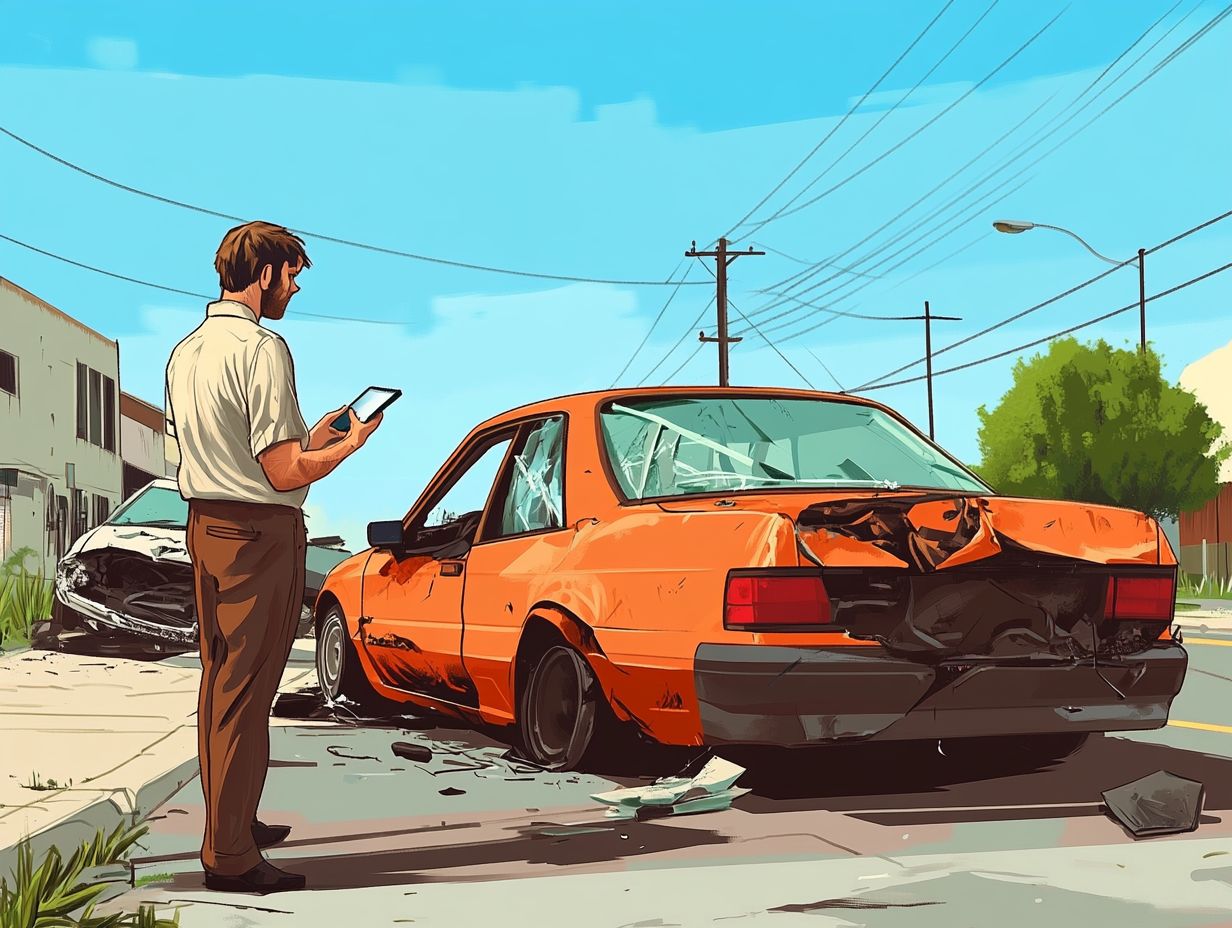
What to Do After a Minor Car Accident?
After a minor car accident, the first thing you should do is check yourself for any injuries. If you are injured, seek medical attention immediately. If you are not injured, move on to the next steps.
What should I do if my car is still drivable after a minor car accident?
If your car is still drivable, move it to the side of the road or a safe location to avoid obstructing traffic. This allows you to quickly assess the damage and take the next steps!
What information should I exchange with the other driver after a minor car accident?
Be sure to exchange names, contact information, license plate numbers, insurance information, and driver’s license numbers with the other driver. Having this information is vital for insurance purposes.
Do I need to call the police after a minor car accident?
If there are no injuries and the damage is minor, you may not need to call the police. However, it’s still a good idea to file a report in case the other driver decides to file a claim later on. If the accident involves a government vehicle or a hit-and-run, you should definitely call the police.
Should I take pictures of the accident scene after a minor car accident?
Yes! It is always a good idea to take pictures of the accident scene, including the damage to both vehicles, any injuries, and the surrounding area. This will serve as evidence for insurance claims and legal purposes.
What should I do if the other driver refuses to exchange information after a minor car accident?
If the other driver refuses to exchange information or does not have insurance, try to gather as much information as possible, including their license plate number and contact information from any witnesses. Then, report the accident to the police and your insurance company.

